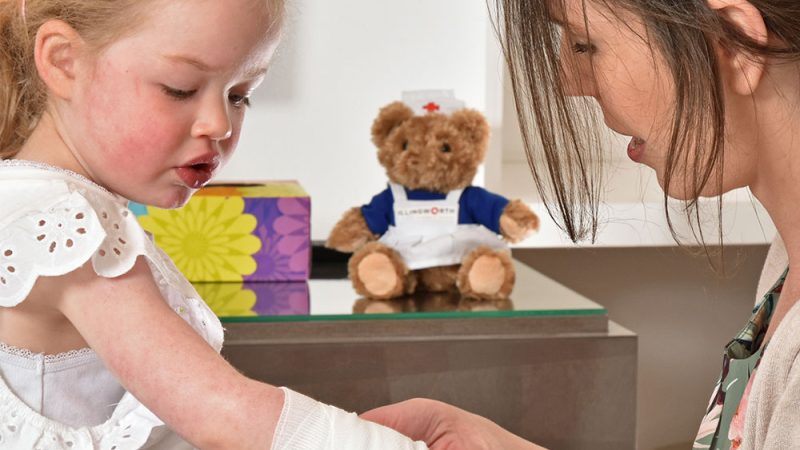Five Experienced Parents Dish on Their Successful Pregnancy Attempts

Despite the smiling faces of their newborns, many parents have experienced difficulties getting pregnant. The World Health Organization (WHO) estimates that approximately 15% of reproductive-aged couples worldwide experience infertility, which is defined as the failure to conceive after one year of regular, unprotected intercourse. Hormonal and genetic abnormalities, ovarian dysfunction, blockage of the fallopian tubes, and other conditions can all contribute to infertility.
Whether they seek fertility treatments or persevere on their own, many parents receive the kid of their dreams, and they pick up a lot of useful information about trying to conceive along the road. Here, parents who have been there offering the insights they’ve gained along the way that can speed up your pregnancy process.
The Signs of Ovulation: What You Need to Know
36-year-old art director Carrie E. Carroll of Arlington, Virginia, planned her pregnancy carefully. At 32, she stopped using contraception and began a healthy lifestyle that included tracking her ovulation, a vegetarian diet, less caffeine, yoga, and running. However, despite her best efforts, she was still unable to conceive after a few months of trying. A friend suggested she start paying more attention to her body at that point. After following her friend’s advice, she experienced the sensation of an egg being released during ovulation a few weeks later.
It is crucial to detect the indications of ovulation because they indicate the menstrual cycle’s peak fertile period. During this time, a mature egg is discharged from the ovary and travels down the fallopian tube, where it can be fertilized. Sexual activity five days before ovulation and on the day of ovulation can increase the likelihood of conception because sperm can survive in the female reproductive tract for up to five days following intercourse.
Through this mom blog you know that there are several methods you can use to track your fertility and pinpoint when you ovulate outside of just listening to your body, and you should use all of them. Basic, over-the-counter ovulation predictor kits are largely regarded as one of the most accurate ways to predict ovulation, despite the prevalence of complex ovulation trackers on the market today. Keep an eye out for ovulation indicators including an increase in your body’s temperature and a shift in your cervical mucus.
Scrub Your Diet Clean Before Trying to Conceive
For couples trying for a second child, infertility can be extremely perplexing. The effects of one’s diet on fertility are substantial, as Mandi learned the hard way. Eating nutritious grains, vegetables, fruits, and fish has been associated in numerous studies with increased fertility in both men and women. On the other hand, studies have found a correlation between consuming red meat, saturated fats, soy, alcohol, and caffeine with lower fertility rates. A well-thought-out fertility diet can do more than just improve your chances of getting pregnant; it can also help ensure your baby is born healthy.
Create a Workout Schedule
Every expecting mother should prioritize healthy eating and regular exercise. In her late twenties, Christy Grimste, a Washington, DC, resident, was diagnosed with the polycystic ovarian syndrome (PCOS). This enabled her to get pregnant. In Christy’s case, in addition to having trouble conceiving, PCOS creates an imbalance of reproductive hormones that manifests itself in irregular menstrual periods and ovarian cysts. Christy had been trying to conceive with the help of the fertility medicines Clomid and Metformin without success until she and her husband were transferred to Turkey for his work. She shed 15 pounds in just two months by ditching her automobile and walking everywhere. She discovered her pregnancy after a month.
Everyone, not just those who are trying to conceive or who have PCOS, can benefit from engaging in regular physical activity. However, moderate exercise has been frequently related to normal ovulation and fertility. Those who are attempting to conceive can benefit greatly from regular exercise since it can help them manage their weight, reduce stress, maintain a healthy hormonal balance, and improve blood flow to the reproductive organs.
Discover Your Optimal Weight
Fertility can be negatively affected by either being overweight or underweight. As a result of her diet, freelance journalist Melissa Pheterson, 34, from Rochester, New York, noticed a significant weight loss. She stopped worrying about her weight after a dietician informed her that it could affect her ability to have children. Melissa got pregnant three months after implementing the modifications.
According to the mom blog, the time it takes a couple to conceive may be affected by the partners’ respective body mass indexes (BMIs). It took longer for women to conceive if they were underweight, overweight, or obese, and for men to conceive if they were underweight. Extreme weight gain or loss, as well as extreme thinness, have previously been related to infertility. If you want to have a healthy pregnancy, it’s a good idea to talk to your doctor about what you and your partner should weigh Read more






